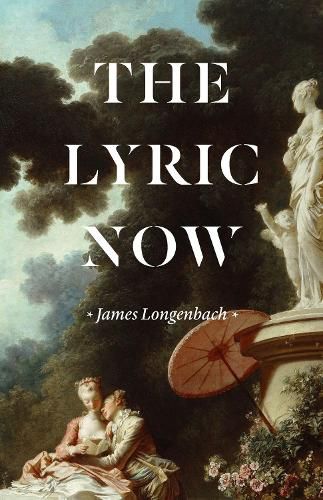Readings Newsletter
Become a Readings Member to make your shopping experience even easier.
Sign in or sign up for free!
You’re not far away from qualifying for FREE standard shipping within Australia
You’ve qualified for FREE standard shipping within Australia
The cart is loading…






For more than a century, American poets have heeded the siren song of Ezra Pound’s make it new, staking a claim for the next poem on the supposed obsolescence of the last. But great poems are forever rehearsing their own present, inviting readers into a nowness that makes itself new each time we read or reread them. They create the present moment as we enter it, their language relying on the long history of lyric poetry while at the same time creating a feeling of unprecedented experience.
In poet and critic James Longenbach’s title, the word now does double duty, evoking both a lyric sense of the present and twentieth-century writers’ assertion of nowness as they crafted their poetry in the wake of Modernism. Longenbach examines the fruitfulness of poetic repetition and indecision, of naming and renaming, and of the evolving search for newness in the construction, history, and life of lyrics. Looking to the work of thirteen poets, from Marianne Moore and T. S. Eliot through George Oppen and Jorie Graham to Carl Phillips and Sally Keith, and several musicians, including Virgil Thomson and Patti Smith, he shows how immediacy is constructed through language. Longenbach also considers the life and times of these poets, taking a close look at the syntax and diction of poetry, and offers an original look at the nowness of lyrics.
$9.00 standard shipping within Australia
FREE standard shipping within Australia for orders over $100.00
Express & International shipping calculated at checkout
For more than a century, American poets have heeded the siren song of Ezra Pound’s make it new, staking a claim for the next poem on the supposed obsolescence of the last. But great poems are forever rehearsing their own present, inviting readers into a nowness that makes itself new each time we read or reread them. They create the present moment as we enter it, their language relying on the long history of lyric poetry while at the same time creating a feeling of unprecedented experience.
In poet and critic James Longenbach’s title, the word now does double duty, evoking both a lyric sense of the present and twentieth-century writers’ assertion of nowness as they crafted their poetry in the wake of Modernism. Longenbach examines the fruitfulness of poetic repetition and indecision, of naming and renaming, and of the evolving search for newness in the construction, history, and life of lyrics. Looking to the work of thirteen poets, from Marianne Moore and T. S. Eliot through George Oppen and Jorie Graham to Carl Phillips and Sally Keith, and several musicians, including Virgil Thomson and Patti Smith, he shows how immediacy is constructed through language. Longenbach also considers the life and times of these poets, taking a close look at the syntax and diction of poetry, and offers an original look at the nowness of lyrics.